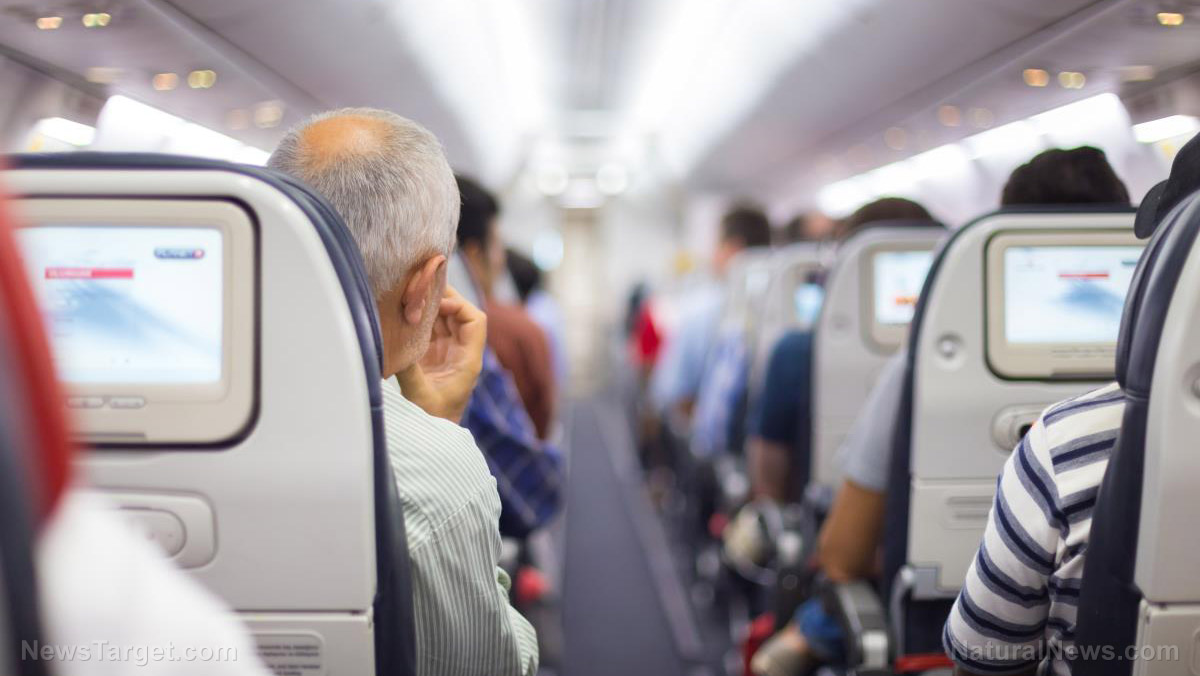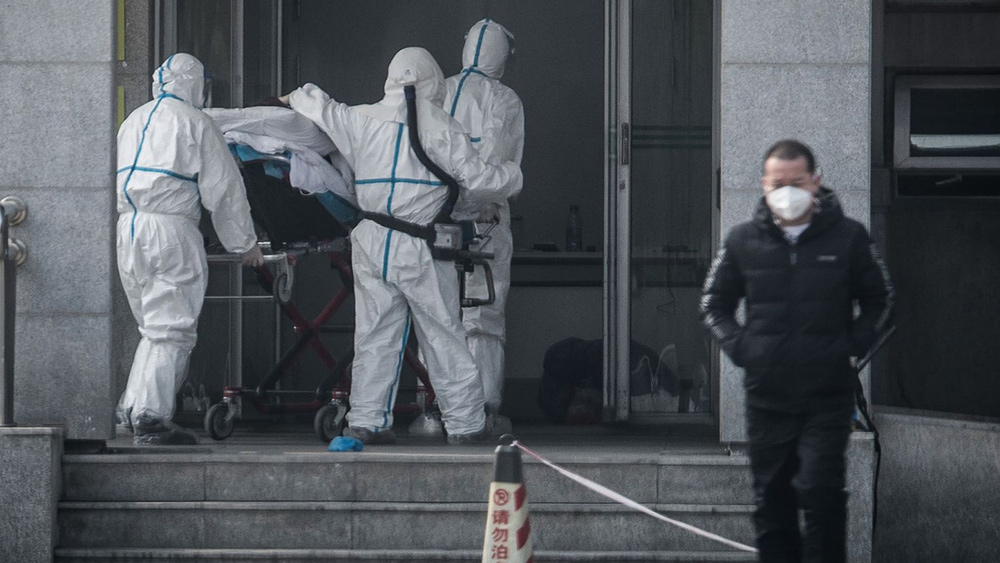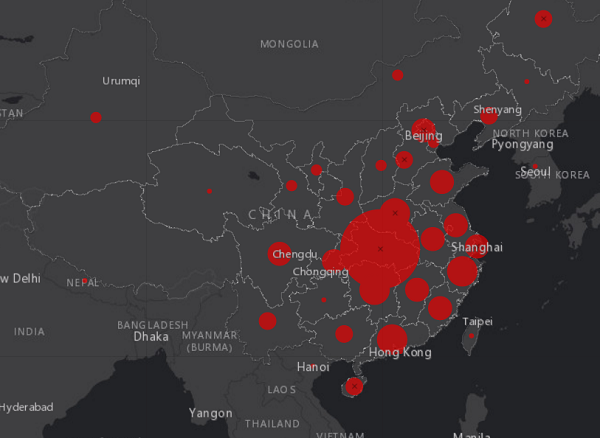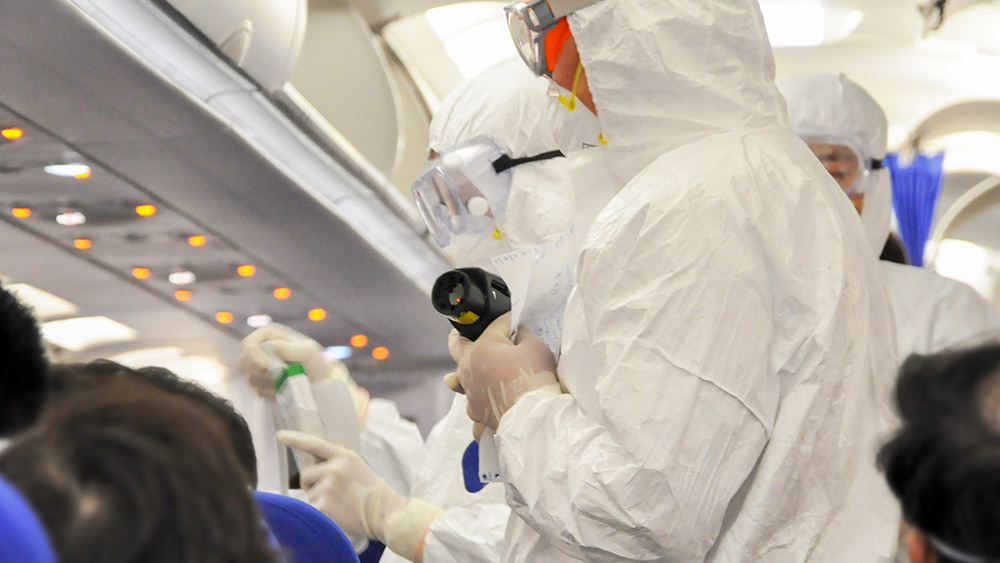Screening catches sick passenger on Beijing-to-Boston flight – but how many aren’t being caught?
02/01/2020 / By Ethan Huff

A trifle considering the circumstances, authorities have successfully intercepted a sick passenger at Boston Logan Airport who had just arrived on a flight from Beijing with undisclosed symptoms, prompting a formal evaluation. But how many others are still arriving daily from China at airports all across this country and not being identified as potentially sick?
According to reports, this particular individual exhibited some kind of illness symptoms that drew Massport Fire Rescue and Boston E.M.S. to the scene. An official statement from Boston Logan Airport explains that all safety protocols were followed, and that the individual was expected “to be transported to a local hospital.”
The announcement did not, however, make any mention about coronavirus, so it remains unknown whether or not this was the suspected disease. It’s also important to note that a Boston E.M.S. spokeswoman has since come forward to reveal that this symptomatic passenger “refused transport” to a local hospital following the evaluation.
But whatever symptoms this individual was exhibiting did not meet the Center for Disease Control and Prevention’s (C.D.C.) criteria for refusing transport – meaning he or she potentially has something very serious that requires immediate admittance to a medical facility.
In nearby New Hampshire, two people who recently returned from travel to Wuhan, China, also reportedly developed concerning respiratory symptoms that prompted officials to test them for the virus.
With the World Health Organization’s (W.H.O.) recent announcement that we’re now dealing with a global emergency, several major airlines have announced cancellations of flights in and out of China.
“Due to a significant decline in demand for travel to China, we are suspending some flights between our hub cities and Beijing, Hong Kong and Shanghai beginning Feb. 1 through Feb. 8,” reads an official statement from United Airlines.
“We will continue to monitor the situation as it develops and will adjust our schedule as needed.”
“Given the significant decline in demand for travel to and from China, American Airlines will suspend travel between Los Angeles International Airport (L.A.X.) and Shanghai Pudong Airport (P.V.G.) as well as L.A.X. and Beijing Capital International Airport (P.E.K.) from Feb. 9 through March 27, 2020,” reads a similar statement from American Airlines.
“We will continue to review our flight schedules to ensure we can accommodate the needs of our customers and will make updates as needed.”
British Airways, Lufthansa, and several other international carriers are likewise following suit.
Should there be an official Chinese travel ban due to coronavirus?
While it’s definitely a step in the right direction for these airlines to axe their Chinese flight routes, even if it’s purely for financial reasons, many are starting to wonder why the federal government isn’t also taking action.
Allowing people who were recently in high-risk areas of China to travel to the United States and potentially infect others with coronavirus bodes ominous for public safety, especially since new cases of coronavirus – including human-to-human transmission – are popping up daily in the U.S.
The last thing our country needs is a major coronavirus outbreak like the one affecting Wuhan, where people who decided to stay before the quarantine was implemented are now stuck there to basically fend for themselves.
Should coronavirus become a major problem here in America, the C.D.C. will have a whole lot of blood on its hands. As you likely know, the agency aggressively pushes vaccines on Americans because it claims to be deeply concerned about disease outbreaks, and yet it’s done nothing to curb the flow of travelers from China inside our borders.
To keep up with the latest coronavirus news, visit Pandemic.news. You can also read more stories like this one at Outbreak.news.
Sources for this article include:
Tagged Under: airports, Beijing, boston, China, coronavirus, disease, outbreak, pandemic, Public Health, screening, transportation, travel, travel ban, Wuhan


















